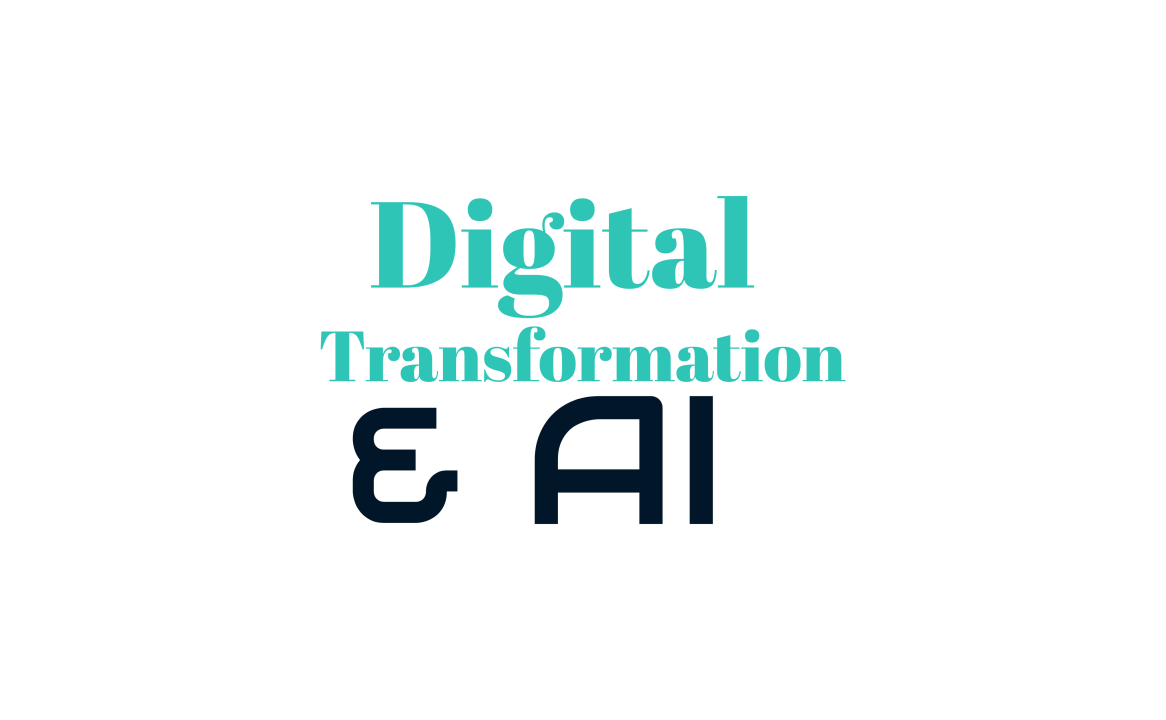Digital Transformation and Artificial Intelligence (AI) are closely related concepts that are transforming the way businesses operate and interact with customers.
Digital transformation refers to the process of leveraging technology to transform and improve the way organizations operate. This involves implementing new technologies, processes, and business models to increase efficiency, productivity, and customer satisfaction.
AI, on the other hand, is a subset of digital transformation that involves the use of intelligent machines that can learn, reason, and perform tasks that typically require human intelligence. AI technologies include machine learning, natural language processing, and robotics.
AI is a critical component of digital transformation because it can automate repetitive tasks, analyze vast amounts of data, and provide insights that can inform business decisions. For example, AI-powered chatbots can provide customer support 24/7, while AI-driven analytics tools can analyze customer data to identify patterns and make predictions about future behavior.
Overall, digital transformation and AI are powerful tools that can help businesses stay competitive in today's fast-paced, technology-driven environment. By embracing these technologies and adapting their processes and business models accordingly, organizations can unlock new opportunities for growth and innovation.
There are some additional points about digital transformation and artificial intelligence:
- Digital transformation is not just about technology, but also about changing business processes and culture to embrace new ways of working. Organizations need to rethink their strategies, business models, and organizational structures to fully leverage the potential of digital technologies.
- AI is already being used in various industries such as healthcare, finance, retail, and manufacturing, to automate tasks and provide new insights. For example, in healthcare, AI can help diagnose diseases, while in finance, AI can detect fraudulent transactions.
- As AI becomes more advanced, it is also raising ethical concerns about issues such as data privacy, bias, and job displacement. It is important for organizations to address these concerns and ensure that AI is used ethically and responsibly.
- Digital transformation and AI are not just for large organizations. Small and medium-sized businesses can also benefit from these technologies by improving their processes, enhancing their customer experience, and creating new revenue streams.
- In addition to improving efficiency and productivity, digital transformation and AI can also help organizations become more agile and responsive to changing market conditions. By leveraging real-time data and insights, organizations can make faster and better-informed decisions.
- The success of digital transformation and AI initiatives depends on having the right talent and skills. Organizations need to invest in training and upskilling their employees to work with these technologies and extract maximum value from them.
- Digital transformation is not a one-time event but a continuous process. As technology evolves, organizations need to keep up with the latest trends and innovations to remain competitive and relevant.
- AI is not a replacement for human intelligence but a complement to it. While AI can automate repetitive tasks and provide insights, it still requires human oversight and decision-making to ensure that the technology is being used effectively and ethically.
- Digital transformation and AI require a culture of innovation and experimentation. Organizations need to encourage their employees to explore new ideas and take calculated risks to drive innovation and growth.
- Digital transformation and AI can also create new business models and revenue streams. For example, AI-powered products and services can provide new value propositions and generate new sources of revenue.
- Data is the lifeblood of AI, and organizations need to have a robust data strategy in place to fully leverage the power of AI. This involves collecting, processing, and analyzing data in real-time to drive insights and inform business decisions.
- Digital transformation and AI are not just about improving efficiency and productivity but also about creating value for customers. Organizations need to put the customer at the center of their digital strategy and focus on delivering a seamless and personalized customer experience.
- The success of digital transformation and AI initiatives depends on strong leadership and a clear vision. Leaders need to set a clear direction and communicate the benefits of digital transformation and AI to all stakeholders.
- Digital transformation and AI require collaboration and partnerships between different departments and external partners. This includes collaborating with technology vendors, startups, and other organizations to access the latest innovations and expertise.
- Digital transformation and AI can also help organizations become more sustainable and socially responsible. For example, AI can be used to optimize energy consumption and reduce waste, while digital technologies can enable remote working and reduce carbon emissions.
- As the pace of technological change accelerates, organizations need to be agile and adaptable to stay ahead of the curve. This involves continuously assessing and updating their digital strategy to remain relevant and competitive.
- Digital transformation and AI can also help organizations attract and retain top talent by providing opportunities for innovation, learning, and career development.
- Digital transformation and AI are not just for the private sector but also for the public sector and non-profit organizations. Governments can use digital technologies to improve public services and promote social welfare, while non-profit organizations can use AI to better target their outreach and advocacy efforts.
In summary, digital transformation and AI are powerful tools that can help organizations create value, improve efficiency, and drive innovation. By embracing these technologies and adapting to the changing business landscape, organizations can stay competitive and relevant in today's fast-paced, technology-driven environment.
In conclusion, digital transformation and AI are powerful forces that are transforming the business landscape. By embracing these technologies and adapting to the changing environment, organizations can gain a competitive edge and unlock new opportunities for growth and innovation.

Intelligent Automations Solution Architect at HCL Technologies
1 年Thanks for sharing